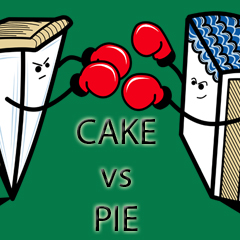 According to a study in the Journal of Consumer Research, there is a common reaction to product choice. The study, produced by Juliano Laran and Keith Wilcox, found that “rejecting an option may make you more likely to choose it later.”
According to a study in the Journal of Consumer Research, there is a common reaction to product choice. The study, produced by Juliano Laran and Keith Wilcox, found that “rejecting an option may make you more likely to choose it later.”
The gist is this: when you reject one item based on features, those features become more important when you go to select the same type of device later. Say, for example, you ignore the iPhone because you want a keyboard and don’t want a large touchscreen. The next time you buy a cellphone, your preferences will tend to be reversed and the keyboard will hold less importance.
“Consider the decision to purchase an iPhone or a Blackberry,” write authors Juliano Laran (University of Miami) and Keith Wilcox (Babson College). “If a consumer prefers a business phone, a choice task would lead her to purchase a Blackberry. In this research we demonstrate that rejecting alternatives makes consumers more likely to select preference-inconsistent options. Thus, if a consumer prefers a business phone, a rejection task would lead her to purchase an iPhone.”
“Such situations are very common in marketing. Consumers may want a nice apartment but still want to save money; they may want a fast car but still care about safety; they may want healthy food, but still desire tasty food,” the authors write. Along that line, even though a consumer may prefer a business phone, she is more likely to purchase the iPhone when she “rejects” it because the process of rejecting increases her focus on the appealing nonbusiness features of the iPhone.
I personally think this explains some of the intensity of the fanboi – by rejected all other options, the mind has to hold onto the chosen option with all its might. Sadly, at least according to Laran and Wilcox, this is doomed to fail.